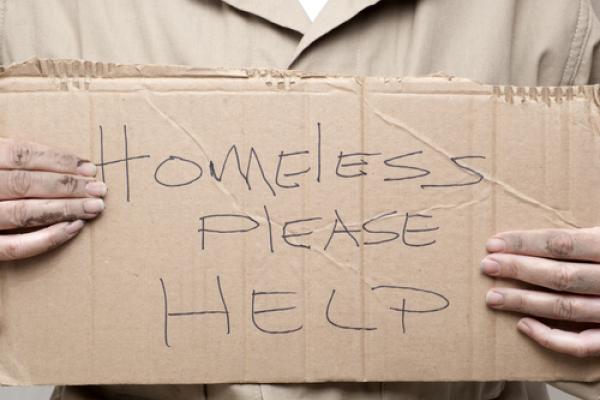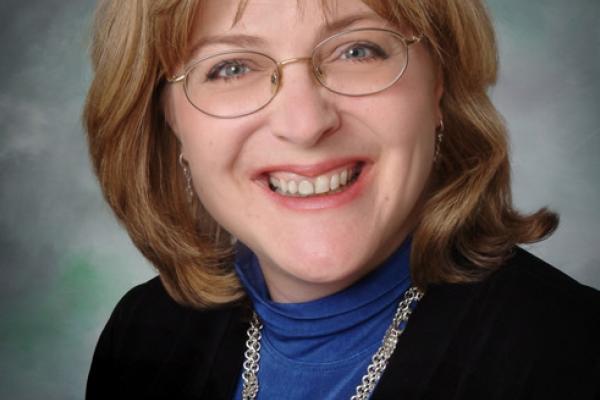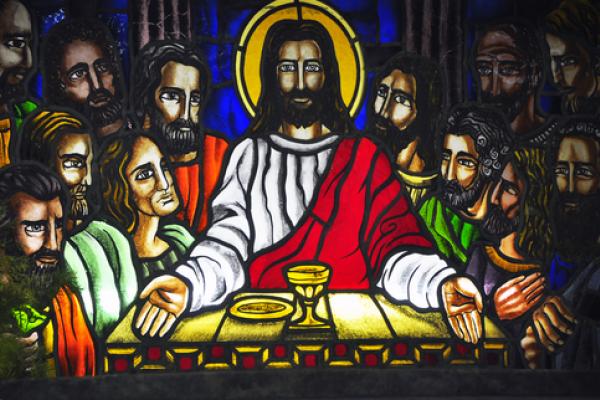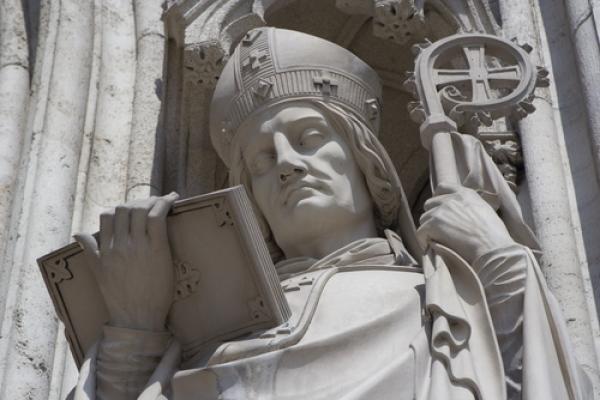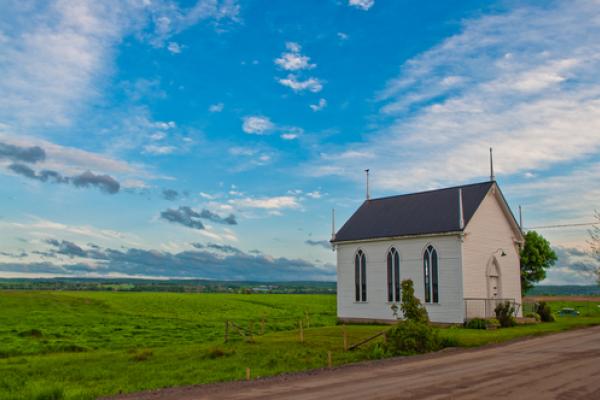Seventh-day Adventists have filed a federal lawsuit challenging the constitutionality of two ordinances in an Alabama city that the church says bars it and other religious groups from door-to-door solicitations unless they first register and pay license fees.
The lawsuit was filed after a member of the church's Summer Student Missionary Program was ticketed in June by a police officer for selling books door-to-door without a City of Alabaster permit, the lawsuit states. After the citation, the group suspended its program in Alabaster, which is about 20 miles south of Birmingham.
"The City of Alabaster has enacted two sweeping ordinances that unconstitutionally restrict the exchange of beliefs and religious principles within the Alabaster city limits," the lawsuit states. The ordinances were enacted in 1994.
The lawsuit seeks a court order that declares the ordinances unconstitutional and bars the city from enforcing them.
Yoko Ono, Sean Lennon and others protest fracking in new song --- kites identify pollutants in Chinese sky --- artists gather in radio studio to play and honor Woody Guthrie on his 100th birthday --- animals with misleading names --- indie star creates African mixtape. See these and more in today's Links of Awesomeness...
My students had questions about the central character in the story Fly Away Home written by Eve Bunting and illustrated by Ronald Himler. And even as 2nd graders, they knew something about the problem.
"Homelessness is mean," said James.
"I pass the Salvation Army on my bus on the way to school every day. I know homeless people sleep there," Billy added.
Fly Away Home tells the story of a boy who lives in an airport with his dad because they have lost their home. They move through the terminals to avoid being noticed by passengers. The story places you in the boy’s shoes and helps you see the world through his eyes. You feel the pain of the dad who can no longer provide a home for his family. You experience what it’s like to have all of your possessions in two blue bags. This is just the right book to help students and teachers think about how we view people who are homeless.
After reading the story to my students, I asked a few questions about homelessness.
Thanks to Steve Knight for alerting me to this joke, which has become one of my instant favorites. After all, it combines two things I dig: nerd humor and theology (also nerdy).
Yeah, yeah, you may be groaning, but you’re smiling while doing it. Admit it.
There’s plenty of chatter lately about the so-called “God Particle,” recently discovered , with some in the scientific field actually calling it the “goddamn particle,” because (at least as I understand it) the discovery opens up the possibility of something without detectable mass actually giving mass to other particles.
Kind of like: In the beginning there was nothing, and then…
Sound familiar?
In recent days, conservatives have attacked the Episcopal Church. The reason? The church has just concluded its once every three-year national meeting, and in this gathering the denomination affirmed a liturgy to bless same-sex unions. Conservatives assert that the Episcopal Church's ever-increasing social and political progressivism has led to a precipitous membership decline and ruined the denomination.
Many of the criticisms were mean-spirited or partisan, continuing a decade-long internal debate about the Episcopal Church's future. However, New York Times columnist Ross Douthat broadened the discussion, moving beyond inside-baseball ecclesial politics to ask a larger question: "Can Liberal Christianity be Saved?"
The question is a good one, for the liberal Christian tradition is an important part of American culture, from dazzling literary and intellectual achievements to great social reform movements. Mr. Douthat recognizes these contributions and rightly praises this aspect of liberal Christianity as "an immensely positive force in our national life."
Despite this history, however, Mr. Douthat insists that any denomination committed to contemporary liberalism will ultimately collapse. According to him, the Episcopal Church and its allegedly trendy faith, a faith that varies from a more worthy form of classical liberalism, is facing imminent death.
In a column Sunday in the U.K.'s Guardian newspaper, Giles Fraser, the former canon chancellor of St. Paul's Cathedral, set a discussion about the Church of England and its stance toward gay marriage within the context of the Eucharist, saying, "The parish church opens up the jollof rice and communal wafers to all comers, shouldn't we do the same with the marriage feast?"
Fraser continued,
The problem with the CofE on the gay issue is not that it doesn't practise what it preaches but that it doesn't preach what it practises. And orthopraxy (what you do) is more properly basic than orthodoxy (what you think). In practice, the CofE has a reasonably good track record of opening up the jollof rice and the communion wafer to all comers – and certainly better than its official pronouncements would lead onlookers to believe. So why is there such a huge gap between the CofE at parish level and the CofE as expressed by official pronouncements? During General Synod this week, the archbishops came under heavy fire from parish clergy for submitting a shockingly negative response to the government's same-sex marriage proposals in the name of the CofE, as if they constituted the CofE's views. They don't. The parish church is typically a more inclusive place than the church's leadership understand. Here there is neither rich nor poor, black nor white, gay nor straight. The archbishops are out of touch. The parish is the centre of gravity of the church.
Read the column in its entirety HERE.
Image: Stained glass window depicting the Last Supper by Antonio V. Oquias/Shutterstock.
Among the list of U.S. institutions—banks, the medical system, the U.S. Supreme Court, Congress—where would you pin organized religion?
According to a recent Gallup poll, it comes in fourth, falling behind the military, small business, and police. Only 44 percent of Americans have a "great deal" or "quite a lot" of confidence in the church—a downward fall that has been the trend since its height in the 1970s.
Drilling down, Protestants tend to have higher confidence—56 percent—in their churches than Catholics, who fall in at 46 percent. (Commentary is linking this to the child abuse scandals.)
Organized religion isn't alone in this. The overall lack of confidence in American institutions is evident across the board, with television news at 21 percent and Congress at an abysmal 13 percent. Even public schools come in at 29 percent.
But is this at all surprising?
Is the Mainline Liberal Church in decline? Numerically, sure. Absolutely. But what this means, I cannot say. Many have tried to make sense of it. In the wake of recent editorials, some theologians and others have offered up their thoughts. I surmised it might be helpful to collect one or two of the links here on the outside chance that you missed them.
Can Liberal Christianity Be Saved - Ross Douthat offers some sharp critiques of the tradition. Once the bastion of the Social Gospel movement, the liberal mainline is not all "social" and very little "Gospel."
"But if conservative Christianity has often been compromised, liberal Christianity has simply collapsed. Practically every denomination — Methodist, Lutheran, Presbyterian — that has tried to adapt itself to contemporary liberal values has seen an Episcopal-style plunge in church attendance. Within the Catholic Church, too, the most progressive-minded religious orders have often failed to generate the vocations necessary to sustain themselves."
There have been a couple of good direct responses to Douthat's OpEd piece.

